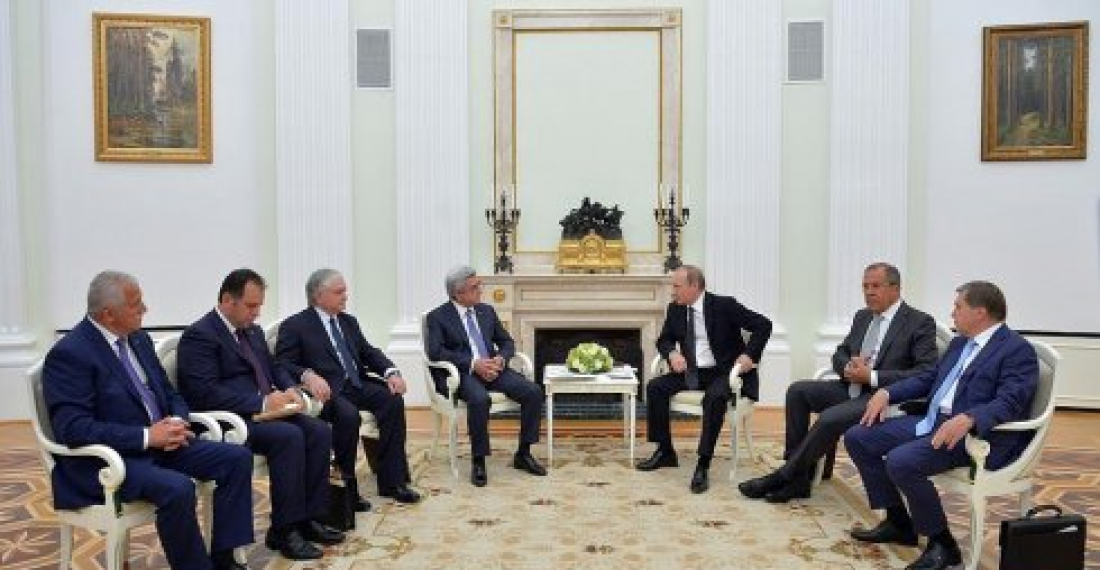(This news item has been updated)
Russian president Vladimir Putin has met with his Armenian counterpart, Serzh Sargsyan in Moscow. The meeting was attended by the foreign ministers of the two countries, Edward Nalbandian and Sergei Lavrov. The meeting followed Putin's meeting with Azerbaijani President Ilham Aliev in Baku Monday and that with Turkish president Recip Tayip Erdogan in St Petersburg yesterday.
The conflict settlement in Nagorno-Karabakh was expected to be on the agenda of the Putin-Sargsyan meeting, as well as a number of bilateral issues between the two countries.
Speaking prior to the meeting president Putin said Armenia was Russia's strategic partner in the Caucasus. Putin said that after its first year as a member of the Eurasia Economic Union Armenia's GDP had grown by 10 %. Responding to President Putin president Sargsyan said that Armenia's trade turnover with Russia has increased by 12 % over the past six months and Armenian exports to Russia are up by 90 % as a result of the EEU membership. He thanked president Putin for his efforts to resolve the Nagorno-Karabakh conflict. Putin on his part said that he had discussed the issue with president Aliev in Baku on Monday and promised to let president Sarsgyan know the results of that meeting.
source: commonspace.eu
photo: The meeting between President Putin of Russia and president Sargsyan of Armenia in Moscow on 10 August 2016 (picture courtesy of the Press Service of the President of Russia).






